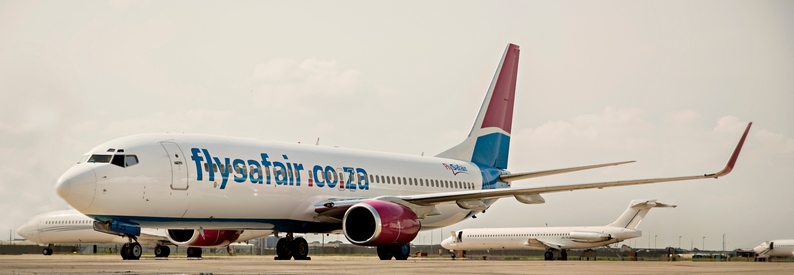FlySafair Faces Sanctions Over Foreign Ownership Rules

South Africa’s FlySafair (FA, Johannesburg O.R. Tambo) is under scrutiny by the International Air Services Licensing Council (IASC) for reportedly violating foreign ownership laws. The IASC claims FlySafair’s parent structure, largely owned by Ireland-based ASL Aviation Group, exceeds the allowable foreign ownership limit, leaving the airline potentially facing sanctions.
Foreign Ownership Dispute and Legal Background
Under South African law, domestic airlines must maintain at least 75% local ownership, with additional requirements for “substantial” local control in international operations. However, FlySafair’s current ownership structure sees ASL Aviation Holdings holding an effective 74.86% share in Safair Operations Ltd, the legal entity of FlySafair. According to the IASC, ASL controls FlySafair through its subsidiary layers, comprising 49.86% ownership via the Safair Investment Trust and another 25% stake through Safair Holdings.
In a leaked letter dated October 31, 2024, the IASC stated, “Safair’s company structure comprises 49.86% shareholding by the Safair Investment Trust, which is one of three shareholders of Safair. This is in addition to the 25% shareholding by Safair Holdings, both ultimately owned by ASL Aviation Holdings.” The IASC will announce specific sanctions within 20 working days, expected by November 28, 2024.
FlySafair’s Response and Compliance Position
In response, FlySafair expressed its commitment to comply with local regulations, stating that its ownership structure is “three tiers removed from daily operations.” The airline emphasized that it operates within South Africa’s legal framework and has sought senior legal advice to support its position.
“FlySafair takes the IASC’s decision seriously. We await further communications and remain dedicated to compliance with South African regulations,” the airline stated. FlySafair also noted that its ownership setup adheres to the “letter and spirit of the law,” asserting that its operations comply with the regulatory requirements.
Industry Complaints and Ongoing Investigations
The IASC investigation into FlySafair’s foreign ownership began in October 2022 after FlySafair submitted an amendment application. Competitors Airlink and Global Aviation Operations subsequently lodged complaints in February 2024, alleging that FlySafair’s ownership structure did not meet the local ownership requirements. Airlink, a prominent South African airline recently backed by Qatar Airways, declined to comment on the issue, as did Global Aviation.
FlySafair disclosed its ownership breakdown to the council, confirming that Safair Operations Ltd is 49.86% owned by the Safair Investment Trust and 25% by Safair Holdings, both ultimately controlled by ASL Aviation Holdings DAC in Ireland. The remaining 25.14% is held by a South African employee ownership group, B4i Safair (Pty) Ltd, as part of FlySafair’s effort to maintain some local stake in its operations.
Possible Sanctions and Industry Implications
The IASC, which governs the licensing of international air services, is expected to detail potential sanctions soon. Concurrently, FlySafair also faces a related complaint from Global Aviation before the domestic Air Services Licensing Council (ASLC), which handles domestic air service regulations. Any sanctions could impact FlySafair’s operations, especially in the competitive South African aviation market.
This case highlights the challenges of maintaining compliance with South Africa’s strict ownership rules, especially for airlines with complex foreign ownership structures. As the IASC deliberates on the case, FlySafair’s future will hinge on its ability to align with local ownership regulations or adjust its structure to meet compliance requirements. The outcome could set a precedent for foreign ownership in South African aviation, potentially impacting other carriers with international shareholders.
Sources: AirGuide Business airguide.info, bing.com, ch-aviation.com
